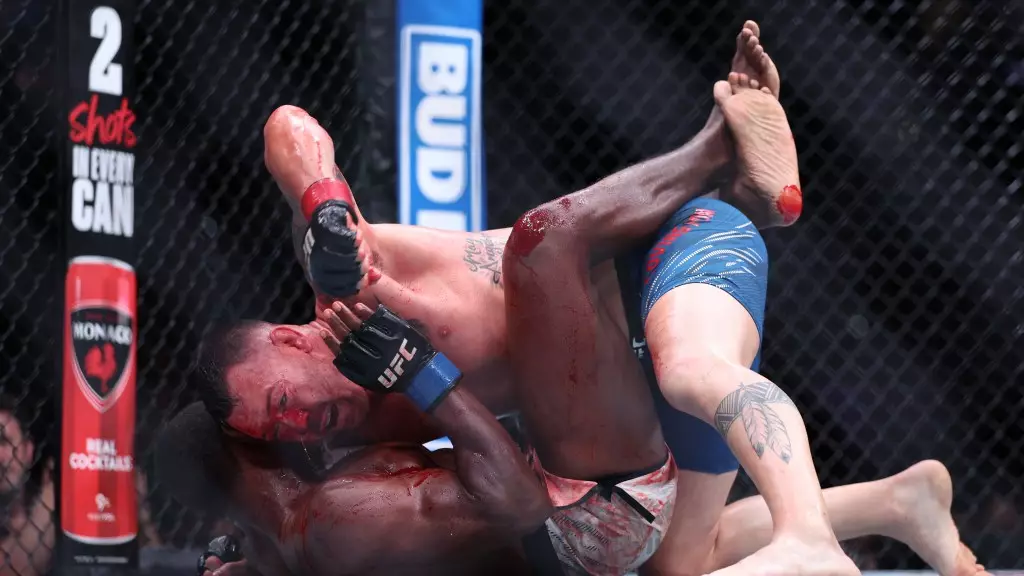Colby Covington’s recent fight at UFC on ESPN 63 didn’t go as he had hoped. The bout, which he accepted on a mere three weeks’ notice, culminated in a third-round doctor stoppage TKO against Joaquin Buckley. This match, held at the Amalie Arena in Tampa, Florida, was not just another fight for Covington; it represented a crucial moment in his career as he aimed to bounce back after facing a previous defeat. Despite being cut on his right eyelid early in the match and enduring significant bleeding, Covington felt that he had the potential to turn the fight around, especially as he perceived a shift in momentum during the third round.
However, the match was stopped by the ringside doctor, a decision that Covington vehemently contests. His disagreement was echoed by UFC CEO Dana White, who suggested that had the fight taken place in Las Vegas, it may have continued. This situation raises important questions regarding fight safety and the role of medical personnel. While undoubtedly the health of the fighters is paramount, the implications of stopping a fight due to a cut can leave competitors feeling short-changed, particularly when they sense a comeback. Covington’s vocal dissatisfaction reflects a deeper issue in professional fighting: the fine line between safeguarding athletes while allowing them the chance to demonstrate resilience in the Octagon.
In the aftermath, Covington displayed a mix of disappointment and determination. Commenting on the bout via his YouTube channel, he maintained a resilient attitude, asserting that his performance wasn’t indicative of his true potential given the circumstances of his short notice training. He framed his participation not just as a personal challenge, but as a commitment to the UFC—a direct nod to the sport he has dedicated much of his life to. In his view, he was beginning to find his rhythm, making it all the more frustrating that the fight was halted.
Looking ahead, Covington’s outlook remains optimistic. He expressed confidence that he could bounce back stronger, reiterating his belief that the best fights are yet to come. Such statements may serve to rally his fans and the broader MMA community, who often admire fighters for their perseverance in the face of adversity. The determination displayed by Covington may not only solidify his fan base but could also pave the way for future opportunities. After all, resilience is a cornerstone of not just athletes but of champions.
Covington’s experience at UFC on ESPN 63 exemplifies the complexities of mixed martial arts—the physical demands, the psychological pressure, and the unpredictability of fight outcomes. The next chapter for Covington may just hinge on how effectively he channels this recent disappointment into motivation for his future endeavors inside the Octagon. Fans and analysts alike will be watching closely to see how he navigates the road ahead.

